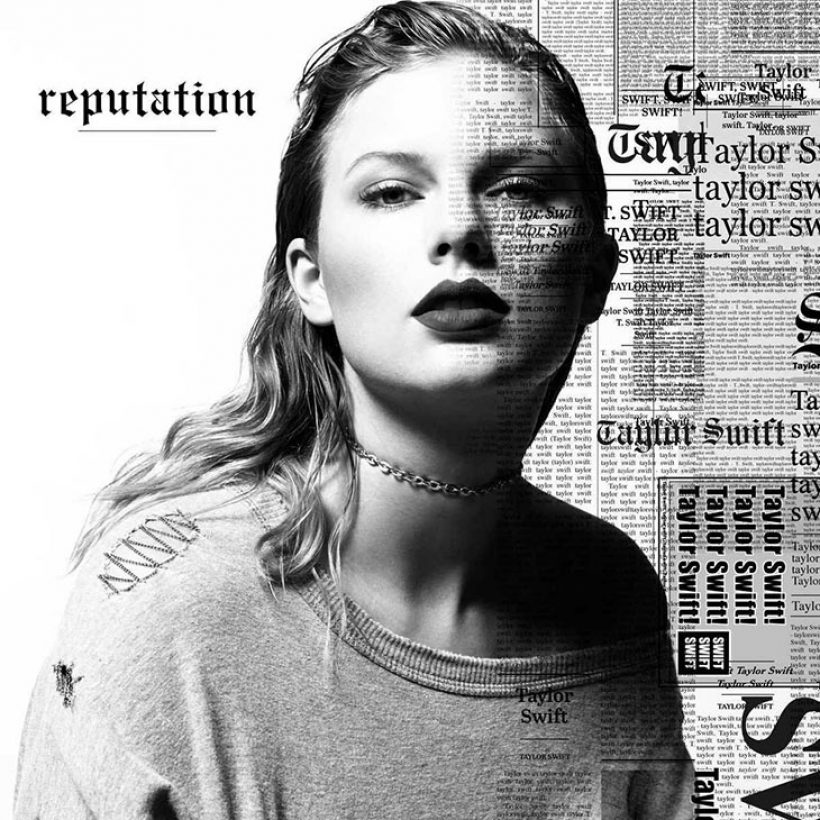‘Reputation’: Taylor Swift’s Confrontational Classic
There was be no better pop album in 2017 than Taylor Swift’s bold and confrontational ‘Reputation’: yet another peak in a career that just keeps rising.

When every syllable and each musical note will be picked apart and pored over, it would surprise no one if Taylor Swift retreated back to the carefully manicured cliché. That her hugely anticipated sixth studio album, Reputation, took such a confrontational (but not always confessional) position demonstrates again the fierce determination that has characterized her career.
The thrilling electro-pop of Reputation’s lead single, “Look What You Made Me Do,” is so far removed from Taylor’s 2006 debut album as to make comparison utterly redundant. If the 15-song album drew on any pedigree, it drew from Red and 2014’s 1989, which saw Taylor step away from her country roots and forge a new all-out pop career. But if 1989 was a decisive but largely comfortable nostalgic throwback, Reputation was a far more ambitious step forward.
Listen to Reputation on Apple Music and Spotify.
The Max Martin and Shellback collaborations largely dominate the first act of the collection. “Ready For It?,” acting as the throbbing call-to-arms opener, is a synth-heavy, hypnotic anthem that made light work of playlists across the globe. Its sister track, “Look What You Made Me Do,” brews the recipe to boiling point and, though both offer some idea of what to expect on Reputation, there’s a broader but consistently of-the-moment pop approach beyond them both.
“Don’t Blame Me” appears to play up to fantasies of Taylor’s reported romances, with the gospel strands that root the song’s rousing foundations gently drenched in parts with Daft Punk-esque vocoders. “Gorgeous” is lighter, frothier and appears almost effortlessly simple, but that is certainly a sweet deception. Classic pop composition can come quickly, but Reputation is far more mannered than that. Every note on this record bristles with a sharp, addictive hook that carefully imprints its mark.
Of course, it’s Taylor’s upfront lyrics, juxtaposed across the largely upbeat collection of tracks, that anchor everything. Hers is a unique skill of communication – tightly mannered prose that sounds intimate and unforced and yet is polished with effortless dexterity. “Salute to me/I’m an American queen,” she commands on “King Of My Heart.” It’s a request seemingly directed to a beau, but she could just have easily been talking to the world. And, in truth, she knows the job in hand requires her to do both. This is the brilliance of her songwriting, but how much of it is truly confessional is anyone’s guess.
The other principal on Reputation is long-time collaborator Jack Antonoff, still on a hiatus from his day job with Fun. Taylor’s and Antonoff’s is a less conformist partnership perhaps, and their tracks – such as the soaring “Getaway Car” – draw less overtly from the commercial radio rulebook that appears to guide almost every moment of Reputation. Antonoff draws Taylor further from the dancefloor than the others, but in truth she’s clearly not up for changing direction when everything seems to be going her way.
Reputation is a largely euphoric but consistently determined statement from a star at yet another peak of her career. She’s enjoying this view, but is still so obviously looking to climb even higher. Little room then for self-doubt; “This Is Why We Can’t Have Nice Things” is as tortured as it gets, and draws – somewhat surprisingly – from the Broadway tradition of a classic showtune.
On “New Year’s Day,” Taylor finally draws breath and strips away the synths to reveal a softer side that we would largely have forgotten about on the evidence of the rest of Reputation. It’s a striking end to a very different album, and therein lies further evidence of Taylor’s unique skill in moving her audience with her, gently referencing the path she has traveled on, but with those hypnotic eyes – and genius composition skills-focused firmly forward.
Released on November 10, 2017, there was no better contemporary pop album that year. Bristling with killer hooks and endlessly fascinating lyrical flair, Taylor’s reputation will suffer no harm at all with this bold, progressive statement.












